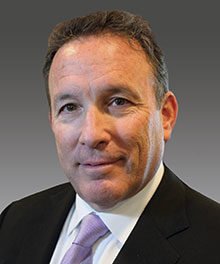Breaking The Bank

With another regional bank collapsing this week, the country’s biggest bank is getting even bigger. JP Morgan Chase acquired First Republic Bank on Monday after the regional bank got seized by the FDIC, with Chase acquiring $92 billion in insured and uninsured deposits, not to mention a customer list that is the envy of the banking industry.
Even before this latest acquisition, Chase was the largest depository institution in the country, with more than $2 trillion in deposits as of December 2022, according to the FDIC (Bank of America was close on its heels, with $1.9 trillion). With this latest deal, one analyst calculates that Chase now holds 16.7% of the nation’s deposits.
And it’s possible Jamie Dimon will have more opportunities in 2023 to expand the bank’s footprint, with investors selling off regional bank shares this week. Although a group of banks tried to shore up First Republic with a $30 billion infusion of uninsured deposits earlier this year, that wasn’t enough. The bank lost more than half of its deposits in Q1 as its wealthy customers got spooked by the Silicon Valley Bank (SVB) collapse and moved their money to bigger institutions or spread deposits around to avoid exceeding the maximum the FDIC will insure.
The Senate Banking Committee held a hearing Thursday called “Holding Executives Accountable After Bank Failures,” but that gesture may not be enough to restore confidence among the high-net-worth depositors who keep many regional banks in business. The First Republic implosion was the third regional bank collapse this year, following Signature Bank, which failed after SVB did and got acquired by New York Community Bank in March. A lot will depend on the percentage of uninsured deposits individual regional banks rely on.
In the meantime, middle market companies need to be prepared for some fallout in the lending markets. The big banks have been cutting back on business lending, and with the Fed raising interest rates on Wednesday, borrowing will get tougher and more expensive. That could lead to slower growth for businesses that need bank financing, usually the least expensive form of funding.
Many of us have been through this scenario before, and the only solution in times like these is to be proactive. There are winners and losers in every business environment. Your business is more likely to find itself in the former camp if you have adequate cash reserves, maintain a healthy balance sheet, and take a scalpel to your budget to root out waste and inefficiency. We are working with many of our clients to improve the capital efficiency of their businesses and encourage you to pick up the phone or send an email if you are looking for new ideas and opportunities.
Have a great weekend, everyone!
